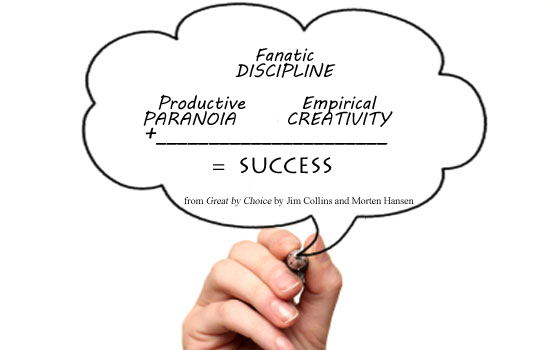 As a leadership coach, I find that Jobs’ personality and work can teach us a great deal about leadership, goal setting, persistence, and starting with “Why?”
As a leadership coach, I find that Jobs’ personality and work can teach us a great deal about leadership, goal setting, persistence, and starting with “Why?”
Neil Patel captures the essence of Steve Jobs’ success in this recent post. What can each of us learn and apply from these 11 lessons?
(EKS Note: Neil Patel is a serial entrepreneur who blogs about business at Quick Sprout and is the co-founder of KISSmetrics. The views expressed are his own.)
Steve Jobs will be remembered as one of the greatest visionaries ever. What he did for the technological as well as entrepreneurial world, will never be forgotten.
Although I’m young and haven’t been following Jobs’ career as intently as others, he has taught me a lot about business in the last five years. Here are 11 things I’ll never forget that Steve Jobs taught me:
People Matter, Not Features
Everything Jobs built made life easier for you. It was rare to ever hear him babbling about features he created; instead, he focused on how these products made life easier for others.
For example, the iPhone enabled you to talk on your phone, watch movies, record movies, and listen to music. As simple as that may sound, without an iPhone you may have had to carry around a cell phone, mp3 player, and a video recorder. Because of him your pockets are much lighter.
He taught me, along with many others, not to focus on just adding features or creating products. First and foremost, you need to focus on solving problems that people are experiencing. If you can do that, you’ll stay ahead of the curve.
There’s Nothing Wrong With Pre-Selling
Most companies launch products and then sell them. Jobs didn’t do that with Apple. He let the public know what he was going to sell them, how it solved their problems, and that they could pre-order the product online.
You can do the same thing. Don’t wait for your product or service to be released. Start selling it now. The money you earn today will help cover your costs and it will help solve any cash flow issues you may encounter during distribution.
Keep it Simple, Silly
I switched from a PC to a Mac because Macs are much easier to use. Or at least they are for my dad and 1-year-old nephew. Every Apple product I bought during Steve’s tenure was simple to use.
He also created cool looking devices, but above all else his products were simple to use. For example, the iPad was the first device I was ever able to give my dad that required little to no instruction. There are no shut down or start options, you just click on applications and start using them.
If you want more applications, you just go to the App Store and download them.
Don’t try to make your solutions complicated. Keep it simple… even if that means you have to strip off the bells and whistles. If you aren’t creating usable solutions, it will be harder to gain traction.
Think BIG
If you are in business, you are there to make money. If not, you shouldn’t be an entrepreneur. If you are going to create a business, create one that changes the world.
Apple isn’t just a technology company, Steve Jobs changed the world. His products are used all around the world and by everyone. This is why Apple is the largest company in the world.
You won’t be able to create a big company unless you solve big problems. Although you can make a nice living by conquering a small niche, you won’t make billions doing it.
Focus, Focus and Focus Some More
When you look at Apple’s website, it seems like they have a lot of products, right? Well, for being a hundred-billion dollar company, they actually don’t.
Jobs was smart, he always focused his energy on a few big products instead of trying to create thousands of small ones. In other words, he went for big wins instead of looking to hit singles and doubles.
With your business you shouldn’t try to do multiple things. Just focus your time and energy on one product or service. As long as your core business continues to grow, you shouldn’t do anything else. The moment your growth slows down and flattens, that’s when you should expand.
Create an Ecosystem
I never really understood the power of creating a platform until the iPhone was released. When the phenomenon hit the market and companies started to create applications, Apple grew to have a huge ecosystem.
Not only were they selling their products, other companies started to build products on the Apple platform and their customers were encouraged to buy and use Apple products.
By this point Apple didn’t have to sell their products, other companies were doing it for them.
Steve Jobs created an ecosystem and he was able to do it around Apple products. If you want to grow a brilliant idea, you have to create an ecosystem for that idea to flourish.
There’s Always Room for Innovation
The iPod wasn’t the first mp3 player. There were hundreds of others that were already out before Apple released the iPod. That didn’t discourage Jobs from entering the space… he just one upped everyone by creating a better product.
These days if you are looking to buy a music player, the first thing comes to your mind is the iPod, right? And what’s the second brand that comes to your mind?
Ummmmm…
That’s right, they demolished all of their competitors. The only other device that I can think of is the Zune, which kind of sucks.
Don’t be afraid to enter a saturated market… you just have to be willing to stir things up. If you can innovate, you will win. If you decide to create another me-too company, expect to be crushed.
Be Passionate
Did you know that Steve Jobs had a salary of $1 a year? That’s right, he didn’t care for money and he stated it publicly. He cared about the company, their products, and changing peoples’ lives.
If you love what you are doing, you are going to work harder and be more likely to succeed. Heck, Jobs even worked hard when he was sick… that’s how much he loved what he was doing.
Don’t just do things for the money, do things because you love what you are doing. You aren’t going to live forever, so enjoy your life while you can.
Never Lose Your Investors’ Money
Although Steve Jobs wasn’t the CEO throughout all of Apple’s history, he always took care of the company. He came back, and turned the company around. In other words, he grew shareholder money and took care of his investors.
As I stated earlier, Apple is the biggest company in the world. It’s very difficult to create a decent size company without taking money from investors… so make sure you take care of them. And if you do so, they’ll always take care of you.
Another great leader who also has a very similar rule is Warren Buffett. If you can take care of the people who are feeding you, they’ll constantly be willing to reciprocate.
You’re Nothing Without Your Team
Apple has a ton of benefits: from onsite fitness centers to tuition assistance, they even have cafeterias with organic food. Why did they do all of this? To take care of their employees.
A big part of being a good leader is realizing that you have to have a good team. It’s impossible to do everything yourself. If you don’t take care of your employees and show your appreciation, you’ll quickly lose them.
If you take care of your employees they’ll put their blood, sweat and tears into your company.
Don’t Forget About Your Friends and Family
As an entrepreneur when you work so hard for so many years, you tend to forget about your friends and family. All you do is live, sleep and breathe business.
At the end of the day, there is nothing wrong with that, but you also have to spend time with your friends and family. Money will always be there, but your friends and family won’t.
When Steve Jobs got sick, he left Apple to spend his final moments with his friends and family. He knew what was important to him. You too, need to figure out what’s important to you. No matter how much time your business or job takes from your life, don’t forget about what’s important.
Conclusion
It’s tragic that Steve Jobs passed away during his prime. He was a great entrepreneur and leader. We’ll never forget what he did for this world.
My condolences go out to his family and friends and may he rest in peace.
Elisa K. Spain


















 The initial results of my Pivot are excellent. I feel I have much greater clarity regarding the next 3-5 years..
The initial results of my Pivot are excellent. I feel I have much greater clarity regarding the next 3-5 years..  John Yerger
John Yerger